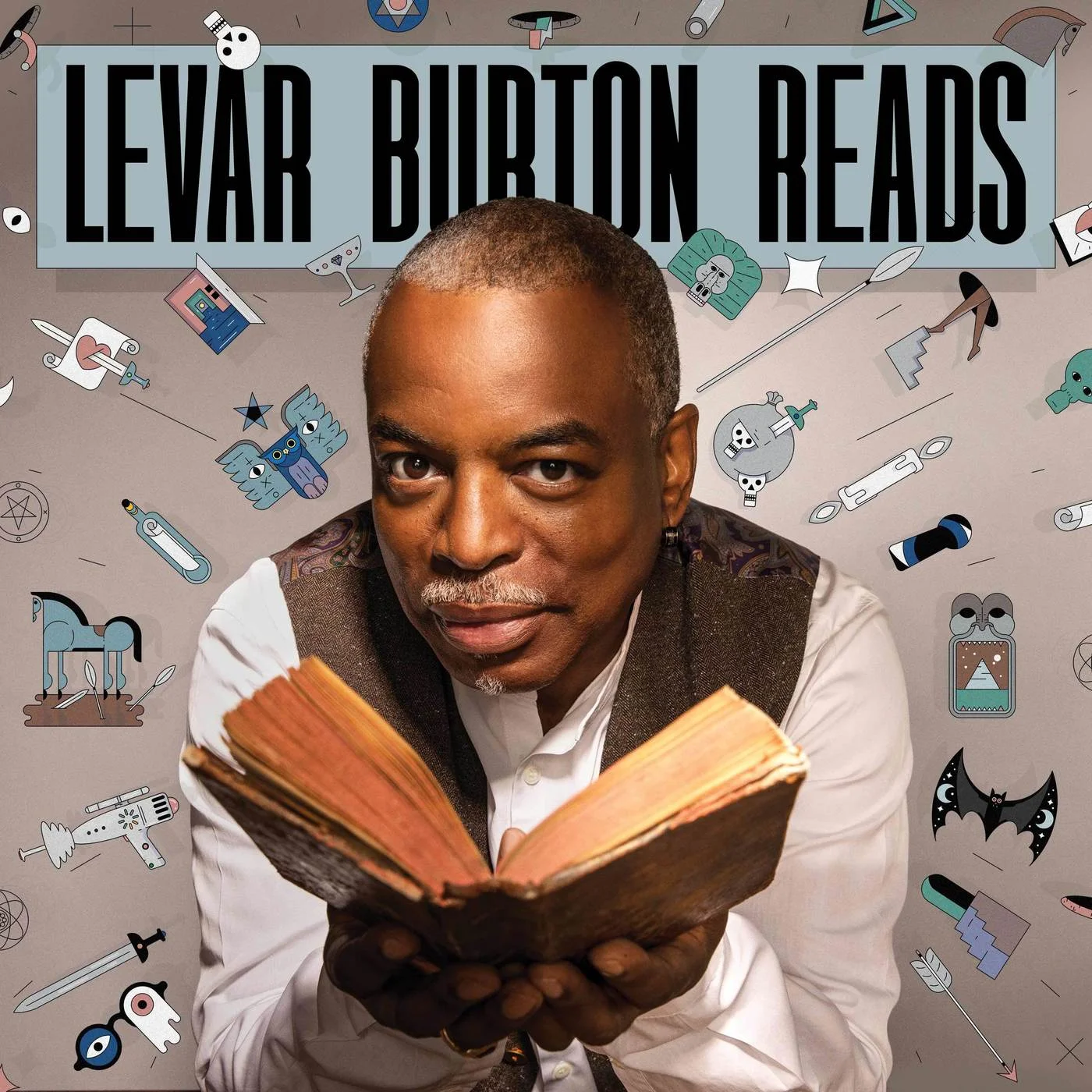Speculative writers from the people of the African diaspora have a deep and rich representation throughout history. In the United States, the earliest speculative novel by an African American author may have been published by Martin Delany in 1859. Samuel R. Delany (no relation) described Martin Delany’s book as “about as close to an SF-style alternate history novel as you can get.” This week the contributors at Fiction Unbound share some of their current favorites.
Theodore McCombs is reading: “Canst Thou Draw Out the Leviathan,” by Christopher Caldwell-Kelly
For Melville, the whaling ship offered a perfect vehicle to sound the fathoms of human fury against the overwhelming forces that buffet and shape their lives: for Ahab, the white whale Moby-Dick was Fate, God, Nature, and everything else you can call human choicelessness. In “Canst Thou Draw Out the Leviathan” (Uncanny No. 28, May/June 2019), Caldwell-Kelly revisits the whaling ship with the same questions but radically different approaches, informed by a black, queer, and anti-capitalist sensibility and a lyrical rigor that fights those devastating forces to a draw. Not bad for a human.
John Wood is a freedman and carpenter on the whaling ship Gracie-Ella, and in an ambivalent romantic relationship with William, a white harpooner. The black cabin boy, Pip (a deliberate, effective intertextual lift from Moby-Dick), receives signs from the loa—divine intermediaries of Haitian Vodou—that the Gracie-Ella is doomed. What happiness John, William, and Pip can carve from a world whose very grain is set against them is the story’s driving question, and one Caldwell-Kelly meets bravely, falling into neither easy revisionism nor easier despair.
“Canst thou draw out the Leviathan with a hook?” is the taunt with which Jehovah rebukes Job and his friends for daring to question, or even try to understand the justice of Job’s suffering. In other words: humans are too much weaker and smaller than God to judge God’s ways. But, of course, Melville saw whalers doing just that—drawing out leviathans with hooks—and Caldwell-Kelly repurposes Melville’s symbol set into contemporary concerns. Now, the overwhelming force is not Fate as much as what Fate has always been: the collection of social structures that empower white men and capital, while stripping agency from people of color, from women, from queer people, from the working-class. The oceans are not just a philosophical cosmos, but also the graveyard of the Middle Passage; the whales may be divine agents, but not of Jehovah, and John and Pip are far more likely to find their allies in the natural world than in the racist, rapacious structures of commercial whaling. Cadwell-Kelly, a 2007 Clarion grad and recipient of the Octavia Butler scholarship, is a sophisticated writer with a sharp eye and strong sense of justice, and definitely worth your getting to know better.
C.H. Lips contemplates “Skinned,” by Lesley Nneka Arimah
I’ve never spent much time pondering the power of clothes. But after reading Lesley Nneka Arimah’s short story, “Skinned,” I have a new appreciation for the anonymity my nondescript sweater and jeans provide. In the male-dominated society of this story, girls between the ages of ten and fifteen are “disrobed” by their families and forced to go to market, attend school, ride the public bus naked until they’re “claimed” by a man.
Ejem is a thirty-something “unclaimed” woman who has refused a man’s offered “wife-cloth” seeing it as “a weight that would smother her.” No longer young, Ejem has had to leave her corporate architect job because a male client focused on her breasts instead of her PowerPoint presentation. And her best friend, Chidinma ends their relationship when Chidinma’s husband starts ogling Ejem’s naked curves.
Throughout this story, Arimah is masterful at evoking the feeling of vulnerability and humiliation nearly every woman in our society experiences at one, or several, points in her life. In one cringy, viscerally disturbing scene, a group of young men openly critique Ejem’s body, then call her rude when she won’t move the box she’s holding so they can have a better look.
Shame. For millennia, male-centric cultures have used it to manipulate and control women. I found it interesting that this story also addresses the role women play in shaming, judging, resenting, and even subjugating other women. While Ejem is disparaged by claimed women for her unclothed status, she fears being relegated to an even lower class of unclaimed women who work in the factories making wife-cloths they’ll never wear, or even worse, being forced into the Osu caste of unclothed women who work as servants for the wealthy. Then, Ejem’s fortunes change and she comes to be served by the caste of Osu women she was nearly forced to join. In another instance, when Ejem becomes free to cover herself and stay unclaimed, her old friend Chidinma resents her: “You don’t get to be covered without giving something up; you don’t get to do that. It’s not fair.”
Lisa Mahoney Recommends: “At the Village Vanguard (Ruminations on Blacktopia),” by Maurice Broaddus
Twenty-five years after black settlers escaped Earth to establish a colony on the moon, they have made it economically and politically successful. They believe they have cast off the internalized fear of racism and historical trauma and moved on … until the past catches up with them. A group of racists, who cannot tolerate black success claims that they are “taking back what is rightfully theirs,” launches an attack on the moon, and Astra Black must save the colony and eliminate the dangerous racists forever.
The most interesting feature of the story is that it is not told linearly, but rather as if by a series of interviews of key players published by a black-owned newspaper.
“Their reporter interviewed (and re-interviewed) many of the principals in order to piece together a picture of the terrorist threat that nearly ended it and the heroic actions of Science Police Officer, Astra Black.”
The reader discovers the imagined colony in glimpses that leave much to be inferred but don’t bore with information dumps. History and background about the future society and the roles of the players are revealed through the words of its citizens and one of the terrorists. Interesting world-building done by snatches of tale-telling which results in multiple different narrative voices.
C.S. Peterson suggests The Water Dancer, by Ta-Nehisi Coates
Memory is bound to the senses. Think of a song from high school, the smell of a flower that grew next to your grandmother’s house, the taste of cinnamon in the fall. Immediately you are transported to a time and a place with the power of deep memory. In The Water Dancer, Coates creates an alternate history set during the dark time when the underground railroad was the perilous means for people to escape enslavement in the American South. Hiram Walker was born into bondage. His mother was sold south when Hiram was nine; he doesn’t remember her. But he remembers everything else, in great detail, and discovers that the power of his memories gives him the gift of conduction, a kind of teleportation. When his senses trigger a memory, he is literally transported through time and space. It is a dangerous gift, and at first, he has no control over it. He almost drowns when a memory of his mother dancing transports him, his reprobate half-brother, and their carriage into the river. His brother dies, and Hiram narrowly escapes. Hiram lives in fear of his memory returning him to the place where he was enslaved. Eventually he learns to control the power that memory gives him, and abolitionists recruit him to use his ability to teleport as a way to rescue the tasked (what Coates calls the enslaved in this alternate history) on the underground railroad. But memory can be fickle. When you want to remember one thing, other memories may come instead. Coates examines the power of memory, and it’s potential to pull a mind back, to be trapped in trauma and a moment that exists forever in time. But there is also the possibility for memory to pull what was trapped in the past forward into freedom, love, and wonder. The Water Dancer is a beautiful, lyric meditation on the past in the present and all the peril and possibility that juxtaposition offers.


















!["A Wrinkle in Time": Fiction Unbound Reviews the Film [Spoiler Warning]](https://images.squarespace-cdn.com/content/v1/5495fc96e4b0d669a5b4ba80/1521819626208-UBOQDI1Q0G5ANBB9YN1S/A%2BWrinkle%2Bin%2BTime%2Bmovie.jpg)





Cadwell Turnbull's new novel — the first in a trilogy — imagines the hard, uncertain work of a fantastical justice.